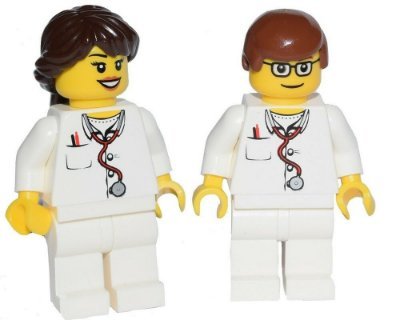
SMHNeurology
@SMHNeurology
Followers
502
Following
44
Media
5
Statuses
144
Joined January 2020
We are recruiting physicians across a number of different specialties @UnityHealthTO, including neonatology, pediatrics, general internal medicine, hematology, oncology, gastroenterology, neurology, and nephrology. Please consider joining us! Ads here:
bpao.org
0
18
31
Our Lego-loving leader Gyl Midroni has been named to the DOM Academy of Master Clinicians! Anyone who knows Gyl would not be surprised by this recognition.
2
2
31
Also can someone get dr reza Vosoughi on Twitter? It would be. Better place if he was here. I would be less scared.
0
0
2
6) manutrition-related presentation. 7) electrolyte disturbance, 8) treatment related (chemo, radiation), 9) opportunistic infections (from immune suppression)
1
0
6
1) direct effect of the primary tumor, 2) Mets to CNS or PNS, 3) leptomeningeal disease, 4) hypercoagulability causing blood clot (eg sinus thrombosis), 5) paraneoplastic syndromes,
1
0
5
After a long hiatus we are back with some wisdom from our very own Dr RV. Someone with a history of cancer and neurological symptoms, always think of the following possible categories:
9
2
9
Do Wha(TS) Write is live! Be sure to visit https://t.co/bQPMZqih7p and support @TouretteCanada! #tourettesyndrome #WritingCommunity #shortstories #writingcontest
1
3
2
Wouldn’t want @MicieliA_MD to leave us without sharing a few more pearls before the OSCE. 😉
0
0
1
Bilateral globus pallidus lesions have been characteristically associated with cerebral hypoperfusion and hypoxic changes mostly due to carbon monoxide and cyanide exposure but can also occur with cocaine use, which is much more common these days!
0
4
17
In other words, the short head of the biceps femoris is the only peroneal-innervated muscle above the fibular neck.
0
0
3
SMH Phenomenology Rounds Pearl 2. All sciatic-innervated muscles in the thigh are derived from the tibial division of the sciatic nerve, with the exception of the short head of the biceps femoris. This is important in the EMG evaluation of peroneal palsy vs sciatic neuropathy.
3
2
8
Finding weakness in one of these muscle groups suggests the problem is NOT at the peroneal/fibular nerve (most common cause of foot drop).
2
0
4
SMH Phenomenology Rounds Pearl 1. A patient presenting with foot drop requires a detailed neuromuscular assessment, with careful attention to testing of foot inversion (tibial nerve L5/S1), hip ABDuction (sup gluteal nerve L5), and hamstrings (sciatic nerve L5-S2).
1
2
8
@MicieliMD out of curiosity is this just something that is written about in neurology textbooks or is it a real finding?
1
0
1
@uoftneurons theoretically, how would you distinguish between a lesion of the CN VI nucleus vs PPRF on exam?
4
0
3

